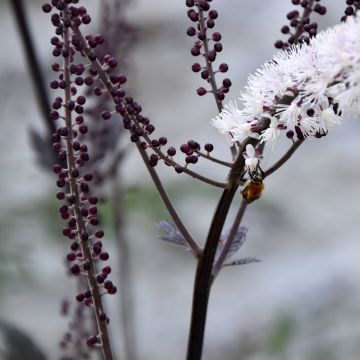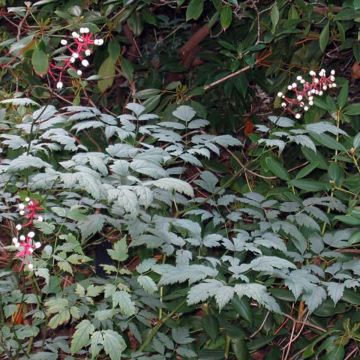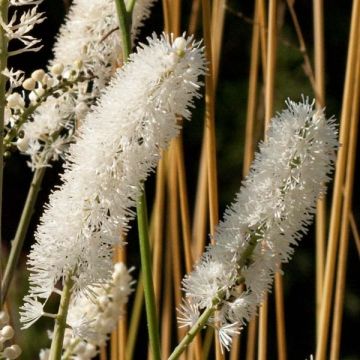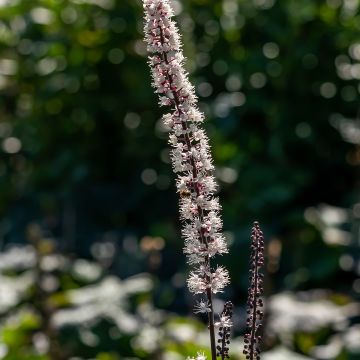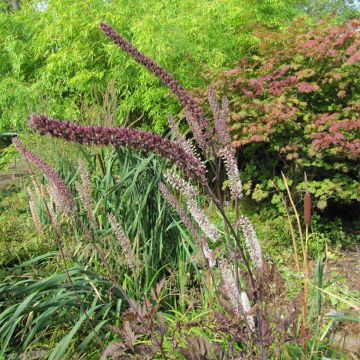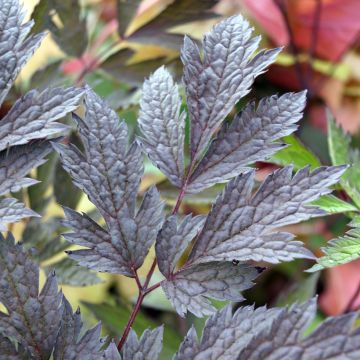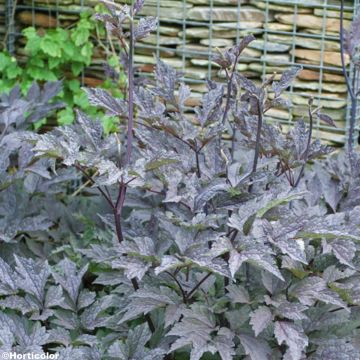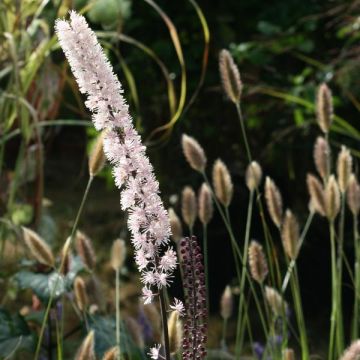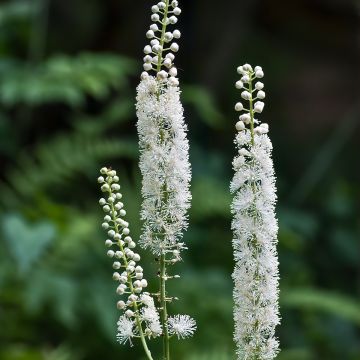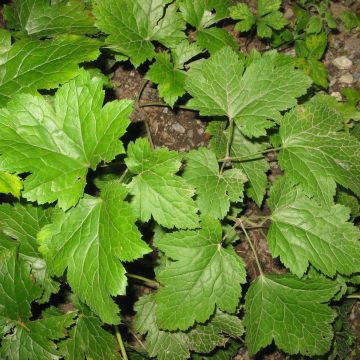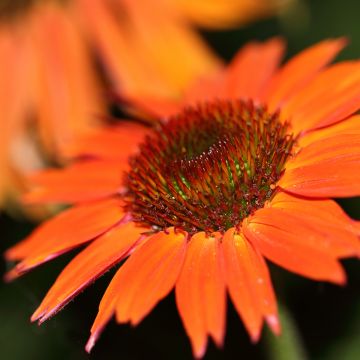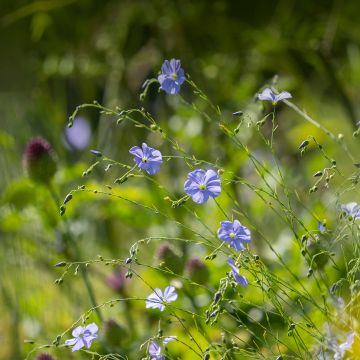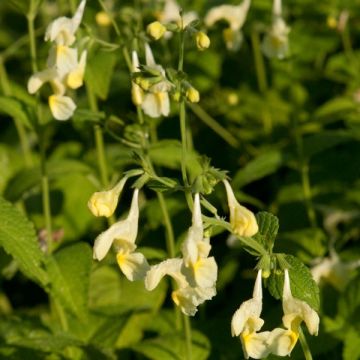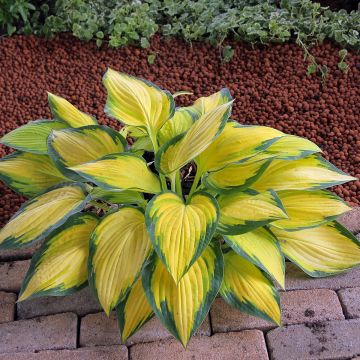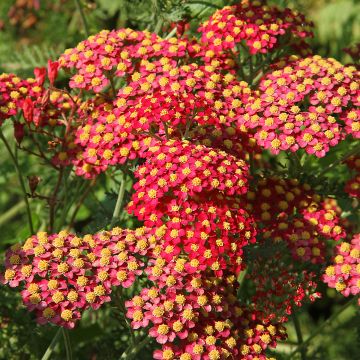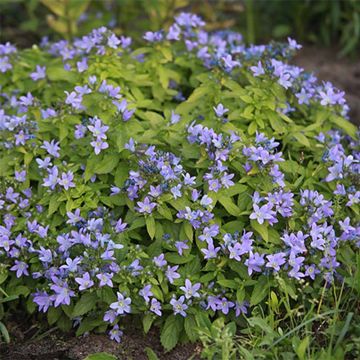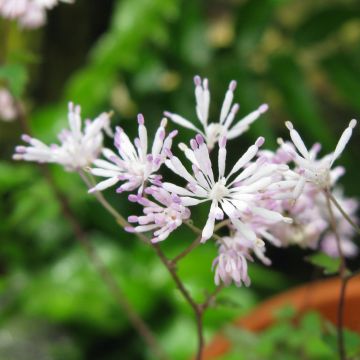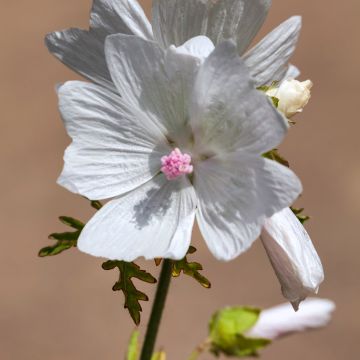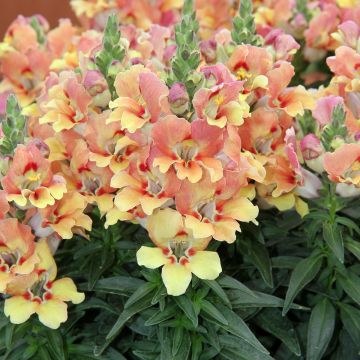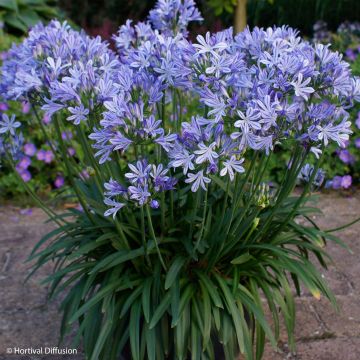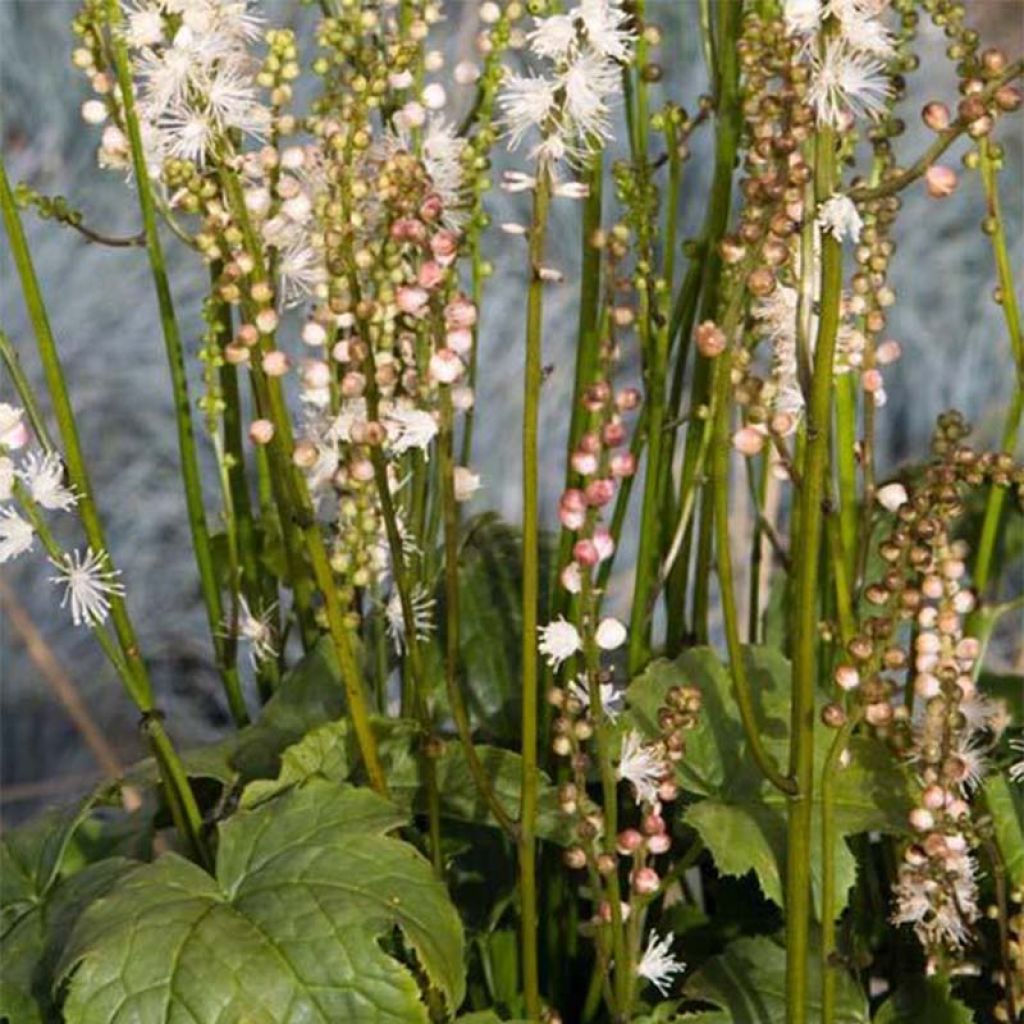

Cimicifuga japonica Cheju-Do
Cimicifuga japonica Cheju-Do
Actaea japonica Cheju-Do
Japanese Baneberry, Japanese Bugbane
This item cannot be shipped to the selected country
Delivery charge from €5.90
Delivery charge from €5.90
More information
Schedule delivery date,
and select date in basket
This plant carries a 12 months recovery warranty
More information
We guarantee the quality of our plants for a full growing cycle, and will replace at our expense any plant that fails to recover under normal climatic and planting conditions.
From €5.90 for pickup delivery and €6.90 for home delivery
Express home delivery from €8.90.
From €5.90 for pickup delivery and €6.90 for home delivery
Express home delivery from €8.90.

Does this plant fit my garden?
Set up your Plantfit profile →
Description
Actaea or Cimicifuga japonica 'Cheju-Do' is named after the South Korean island where it was discovered. This silver candle is a particularly compact variety and resistant to leaf spots that is not lacking in charm. It first seduces with its lovely spring foliage, made of purple young shoots unfolding into lobed leaves that appear silver-glazed. Then it chooses the end of summer to offer its generous flowering, in long, slightly fragrant white-cream spikes. Robust, hardy, and beautifully airy, this perennial with sleek design is one of those plants that are self-sufficient and uniquely structure shaded areas.
Actaea japonica, also known as Cimicifuga acerina, is a plant of the buttercup family native to wooded regions of Japan, Korea, and China. 'Cheju-Do' is a sturdy and majestic perennial that develops from a blackish rhizome with fibrous roots arranged in compact masses; this plant slowly forms bushy clumps not exceeding 80cm (32in) in height when flowering, 30cm (12in) for the foliage, with a minimum spread of 50cm (20in). Its basal foliage consists of large, long-petioled, generally rounded leaves, divided into 3 toothed lobes. Their colour in spring is a light green with a hint of grey, shiny, with a tin-like sheen, slightly fading during the season. Flowering occurs in September-October, in the form of 12 to 15 large terminal inflorescences bearing pink buds that open into tiny white-cream flowers. These spikes take the form of slender upright or arched spikes, with an indescribable fragrance. This flowering is very honey-producing and nectar-rich, and its scent does not appeal to everyone.
Actaea 'Cheju-Do' will thrive in partial shade, in the dappled light of a clear understory or on the edge of a forest. This plant appreciates humus-rich, moist soils, and even on the very humid banks of a pond. In flower beds, its highly graphic silhouette and truly luminous flowers will emerge from the faded perennials at the end of summer. Its foliage pairs well with that of hostas and Heucheras, and its flowering with that of Japanese anemones. This majestic plant will make a beautiful specimen, planted in a large pot on the terrace.
Report an error about the product description
Cimicifuga japonica Cheju-Do in pictures
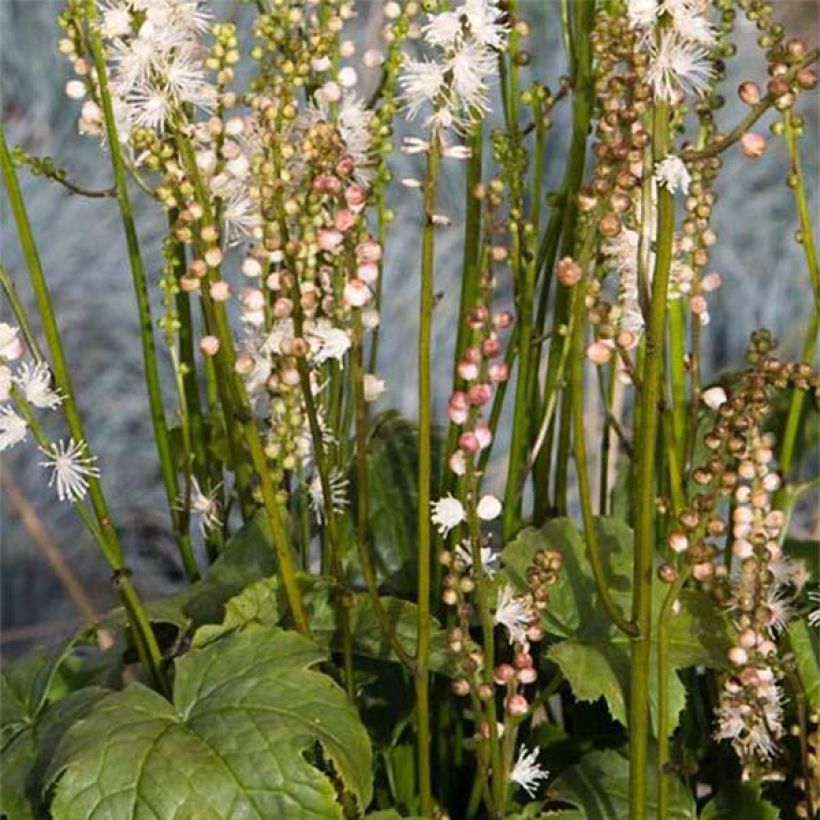

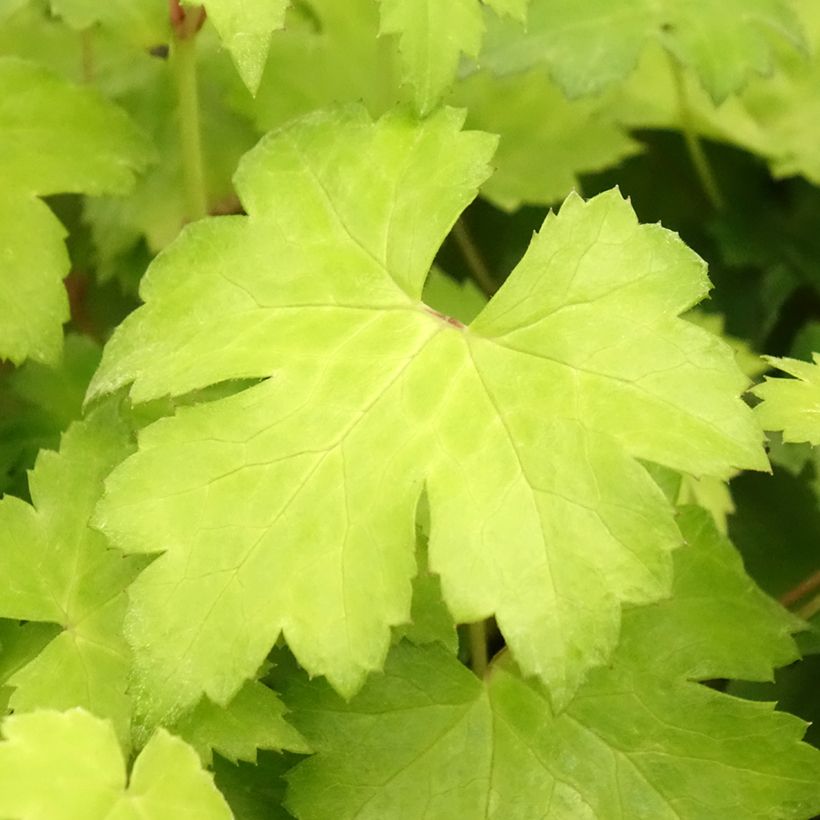

Flowering
Foliage
Plant habit
Botanical data
Actaea
japonica
Cheju-Do
Ranunculaceae
Japanese Baneberry, Japanese Bugbane
Cimicifuga acerina 'Cheju Form Island'
Southeast Asia
Other Cimicifuga
Planting and care
Cimicifuga bring a lot of personality to the garden in late summer, in the background of a flower bed or in a light woodland. They appreciate partial shade as well as a rich and deep soil, not too chalky, rich in humus and remaining moist. Monitor watering, especially for young plants. They generally do not need staking and require no other maintenance. Very cold-resistant, Cimicifuga 'Cheju-Do' will find a place in any fertile and moist soil, occasionally waterlogged.
Planting period
Intended location
Care
-
, onOrder confirmed
Reply from on Promesse de fleurs
Summer flowering perennials
Haven't found what you were looking for?
Hardiness is the lowest winter temperature a plant can endure without suffering serious damage or even dying. However, hardiness is affected by location (a sheltered area, such as a patio), protection (winter cover) and soil type (hardiness is improved by well-drained soil).

Photo Sharing Terms & Conditions
In order to encourage gardeners to interact and share their experiences, Promesse de fleurs offers various media enabling content to be uploaded onto its Site - in particular via the ‘Photo sharing’ module.
The User agrees to refrain from:
- Posting any content that is illegal, prejudicial, insulting, racist, inciteful to hatred, revisionist, contrary to public decency, that infringes on privacy or on the privacy rights of third parties, in particular the publicity rights of persons and goods, intellectual property rights, or the right to privacy.
- Submitting content on behalf of a third party;
- Impersonate the identity of a third party and/or publish any personal information about a third party;
In general, the User undertakes to refrain from any unethical behaviour.
All Content (in particular text, comments, files, images, photos, videos, creative works, etc.), which may be subject to property or intellectual property rights, image or other private rights, shall remain the property of the User, subject to the limited rights granted by the terms of the licence granted by Promesse de fleurs as stated below. Users are at liberty to publish or not to publish such Content on the Site, notably via the ‘Photo Sharing’ facility, and accept that this Content shall be made public and freely accessible, notably on the Internet.
Users further acknowledge, undertake to have ,and guarantee that they hold all necessary rights and permissions to publish such material on the Site, in particular with regard to the legislation in force pertaining to any privacy, property, intellectual property, image, or contractual rights, or rights of any other nature. By publishing such Content on the Site, Users acknowledge accepting full liability as publishers of the Content within the meaning of the law, and grant Promesse de fleurs, free of charge, an inclusive, worldwide licence for the said Content for the entire duration of its publication, including all reproduction, representation, up/downloading, displaying, performing, transmission, and storage rights.
Users also grant permission for their name to be linked to the Content and accept that this link may not always be made available.
By engaging in posting material, Users consent to their Content becoming automatically accessible on the Internet, in particular on other sites and/or blogs and/or web pages of the Promesse de fleurs site, including in particular social pages and the Promesse de fleurs catalogue.
Users may secure the removal of entrusted content free of charge by issuing a simple request via our contact form.
The flowering period indicated on our website applies to countries and regions located in USDA zone 8 (France, the United Kingdom, Ireland, the Netherlands, etc.)
It will vary according to where you live:
- In zones 9 to 10 (Italy, Spain, Greece, etc.), flowering will occur about 2 to 4 weeks earlier.
- In zones 6 to 7 (Germany, Poland, Slovenia, and lower mountainous regions), flowering will be delayed by 2 to 3 weeks.
- In zone 5 (Central Europe, Scandinavia), blooming will be delayed by 3 to 5 weeks.
In temperate climates, pruning of spring-flowering shrubs (forsythia, spireas, etc.) should be done just after flowering.
Pruning of summer-flowering shrubs (Indian Lilac, Perovskia, etc.) can be done in winter or spring.
In cold regions as well as with frost-sensitive plants, avoid pruning too early when severe frosts may still occur.
The planting period indicated on our website applies to countries and regions located in USDA zone 8 (France, United Kingdom, Ireland, Netherlands).
It will vary according to where you live:
- In Mediterranean zones (Marseille, Madrid, Milan, etc.), autumn and winter are the best planting periods.
- In continental zones (Strasbourg, Munich, Vienna, etc.), delay planting by 2 to 3 weeks in spring and bring it forward by 2 to 4 weeks in autumn.
- In mountainous regions (the Alps, Pyrenees, Carpathians, etc.), it is best to plant in late spring (May-June) or late summer (August-September).
The harvesting period indicated on our website applies to countries and regions in USDA zone 8 (France, England, Ireland, the Netherlands).
In colder areas (Scandinavia, Poland, Austria...) fruit and vegetable harvests are likely to be delayed by 3-4 weeks.
In warmer areas (Italy, Spain, Greece, etc.), harvesting will probably take place earlier, depending on weather conditions.
The sowing periods indicated on our website apply to countries and regions within USDA Zone 8 (France, UK, Ireland, Netherlands).
In colder areas (Scandinavia, Poland, Austria...), delay any outdoor sowing by 3-4 weeks, or sow under glass.
In warmer climes (Italy, Spain, Greece, etc.), bring outdoor sowing forward by a few weeks.

































